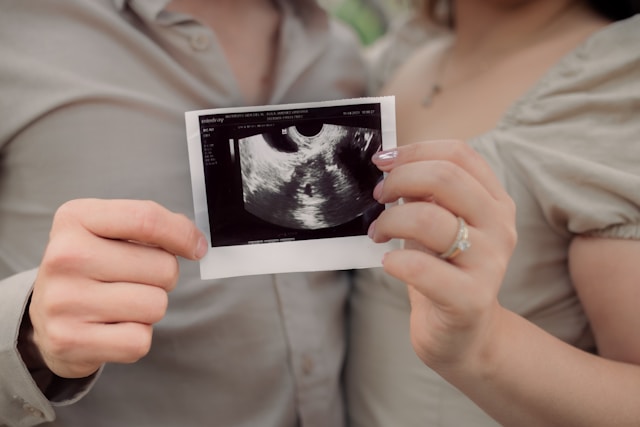Becoming an egg donor is one of the most selfless gifts a woman can offer. It’s a transformative decision that allows individuals or couples facing infertility to experience the joys of parenthood. Many women can contribute to the egg donation process. This article will guide you through the necessary details of becoming an egg donor, including the requirements, and highlight the rewarding experiences found in egg donation programs in Utah.

What is Egg Donation?
Egg donation involves a woman providing her eggs (also known as oocytes) to another woman or couple unable to conceive with their own eggs. This generous act can assist those experiencing infertility due to age, medical issues, or genetic concerns. To qualify as an egg donor in Utah, women must undergo a thorough screening process to ensure they meet the necessary criteria. After approval, donors will participate in a medical procedure to retrieve their eggs, which will later be fertilized and implanted into the intended parent’s uterus.
Eligibility Requirements to Be An Egg Donor
Deciding to become an egg donor is not a trivial matter. It offers the opportunity to make a profound impact on another’s life, but it demands careful consideration of both physical and emotional readiness. The following key criteria must be met:
Age Requirements
Egg donation programs, including those in Utah, typically accept donors aged 21 to 30. This age range is preferred since women within it are more likely to have healthier, viable eggs. Younger donors usually exhibit higher success rates, as egg quality tends to decline with age.
Good Physical Health
Donors should be in excellent overall health. This includes maintaining a balanced weight, having no history of chronic diseases, and being free of sexually transmitted infections (STIs) or genetic disorders. A comprehensive medical screening—consisting of blood tests, ultrasounds, and checks for specific genetic conditions—is required before a donor is approved.
Psychological Readiness
The decision to donate eggs can carry emotional weight. Donors must confront the reality that they will not be raising the resulting child, which prompts an emotional process of letting go of biological parenthood. Psychological evaluations are administered to assess whether the donor is mentally prepared for this journey.
Lifestyle Considerations
Many egg donation programs have specific lifestyle requirements. Donors are generally prohibited from smoking, excessive alcohol consumption, or using illegal drugs, as these lifestyle choices can adversely affect egg quality and the chances of a successful donation.
Commitment to the Process
Becoming an egg donor requires a significant commitment of time. The process includes multiple medical appointments, hormonal treatments, and a final egg retrieval procedure. These appointments can span several weeks, and potential donors must be prepared to devote time to each stage of the process. Details about this commitment are fully explained before a donor agrees to participate in the Utah egg donation program.
The Benefits of Becoming an Egg Donor
While fulfilling the responsibilities of egg donation may seem daunting, the rewards are substantial and transformative. Here’s how the experience benefits egg donors:
The Gift of Family
One of the most rewarding aspects of egg donation is its significance to intended parents. Individuals and couples battling infertility often consider egg donation their best chance to conceive a biological child. Knowing you’re helping someone build their family is an incredible privilege.
Financial Compensation
While most egg donors are motivated by altruism, they often receive compensation for their time and effort. Egg donation in Utah adheres to ethical guidelines, ensuring that only healthy donors with a suitable medical background are accepted, and that donors are rightfully compensated for their contributions.
Empowerment
Many donors emerge from the experience feeling empowered and fulfilled. Knowing you’re providing life-changing opportunities for others can be immensely rewarding, and many donors take pride in the knowledge that their contribution can help create a family.
Health Benefits
Though egg donation is a medical procedure, it also allows donors to undergo comprehensive health screenings. These screenings can identify potential health issues, including cervical and other cancers, that the donor may not have otherwise discovered. Regular assessments throughout the donation process also help ensure the donor’s well-being.
No Lifetime Parenting Responsibilities
Unlike traditional motherhood, egg donors are not expected to raise the children resulting from their donation. While donors facilitate the creation of a family, they remain free to pursue their own lives and careers without long-term parenting obligations. This unique opportunity allows donors to support others while maintaining their personal independence.
Conclusion
Choosing to become an egg donor is a noble and impactful decision. Understanding the eligibility criteria and motivations for women considering egg donation in Utah is crucial. Egg donation is not a choice to be taken lightly, given the extensive screening processes and emotional and physical commitments involved. However, the rewards such as the joy of helping others grow their families, financial compensation, and the personal satisfaction of making a difference can make it a truly remarkable experience. If you possess the necessary qualities and are mentally prepared for this path, egg donation can profoundly change lives.
About Outoftownblogs
Be sure to check out all posts by Outoftownblogs and subscribe via RSS or EMAIL so you don’t miss a thing!





